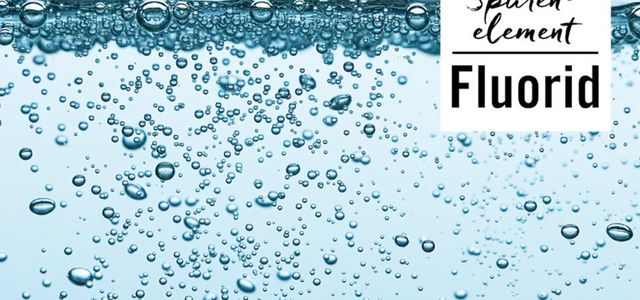
Fluoride and fluorine are often confused with one another and are therefore hotly debated: Is fluoride toxic? Is Fluoride-Free Toothpaste Better? Utopia took a closer look at the trace element.
First things first: fluoride is a trace element that supports important functions in the body. It is added to most toothpastes, table salts and some mineral waters. However, it is common with fluorine confused: Fluorine is a gaseous element, which has a strong corrosive effect and is very toxic – it does not occur in food, toothpaste or drinking water. This article explains the importance of the trace element fluoride for health.
Functions of fluoride
There is no such thing as a “fluoride” per se: Fluorides are a group of salts which, if too high a dose, can also become toxic, but in the right amount take on important tasks in the body. They are components of tooth and bone tissue and perform functions such as:
- Hardening of tooth enamel
- Strength of bones
- Caries prophylaxis
- Inhibits acid-forming bacteria in the mouth
Fluoride is particularly effective when it reaches the tooth enamel directly with the saliva.
What happens if there is a lack of fluoride?
In Germany – in contrast to some other countries – the drinking water is free of artificially added fluoride. However, the natural content of the trace element can vary greatly from region to region. That is why it is not possible everywhere to take in enough fluoride to prevent tooth decay and almost all dentists advise using toothpaste containing fluoride. In a current statement by the German Dental Association it says: “Using toothpaste containing fluoride is one of the most effective measures to prevent caries. “
Since April 2021, there has also been a uniform recommendation for the prevention of caries in infancy and childhood: The Federal Ministry of Food and Agriculture (BMEL) recommends a fluoride tablet for babies from birth every day. As soon as the first tooth is there, the child should slowly get used to brushing their teeth: Parents now have the choice of either using toothpaste containing fluoride (the size of a grain of rice) or giving the child a fluoride tablet every day and using fluoride-free toothpaste.
Statistics on the frequency of tooth decay clearly show that the more people have access to toothpaste containing fluoride, the more drastically the spread of tooth decay decreases. So if you do not take in any or too little of the trace element with your food, you should pay attention to toothpaste containing fluoride – even in adulthood.
Fluoride overdose
It is not possible to take in too much of the trace element through a normal diet – provided you take care not to consume any specially fortified foods and live in a country where the drinking water is not fortified.
In a current statement (2021), the Federal Institute for Risk Assessment (BfR) speaks out against the fortification of food supplements and other foods with fluoride. A maximum amount of 0.25 mg per gram of salt has been set for the fortification of table salt.
According to the BfR, there is a possibility that uncontrolled consumption of fortified foods in combination with water containing fluoride and excessive consumption of black tea can lead to undesirable health effects. Acute overdose can cause nausea, vomiting and abdominal pain. Long-term oversupply can lead to diseases of the bones and teeth.
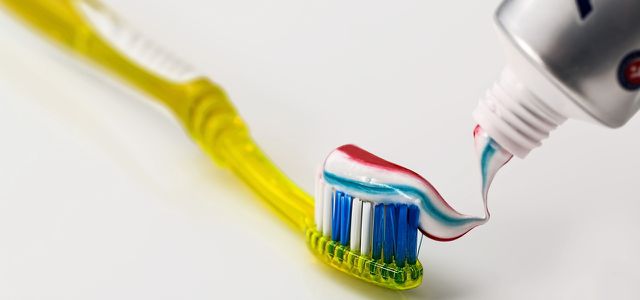
If children take in too much fluoride during the development of their permanent teeth, this is reflected in white, cloud-like areas in the tooth enamel. However, the function of the teeth is not impaired. An extreme and persistent overdose can lead to yellowish-brown spots and holes. However, an overdose of fluoride through toothpaste is impossible: an adult would have to eat a few tubes of toothpaste every day.
The European Food Safety Authority (EFSA) has set the tolerable daily intake at 0.12 mg per kg of body weight – that is around 7 mg per day. However, the value is not that easy to achieve: For example, you would have to drink around 7 liters of black tea a day to achieve the value.
Daily need for fluoride
Growing children in particular need fluoride. In the daily intake, all sources should be taken into account, such as drinking or mineral water, dental care products, food or dietary supplements. The German Nutrition Society (DGE) publishes guide values for the recommended total fluoride intake here.
The need increases with age and reaches the maximum from around 19 years of age 3.8 milligrams per day for men and 3.1 milligrams per day for women. According to the DGE reference values, pregnant women and breastfeeding women no longer need them either.
Which foods contain fluoride?
First of all, it is worth taking a look at the label of the one used Mineral water. Fluoride – if contained – should be listed there. A call to the drinking water supplier is also a good way of finding out about the possible supply through the Drinking water. The content in tap water is particularly high in the Eifel and Münsterland.
Other good natural sources include:
- black and green tea
- sea fish
- mussels
However, because in most regions the drinking water has only a very low content and the supply of the population with fluoride cannot be covered with it, is the use of fluoridated dental care products is generally recommended. Stiftung Warentest and Öko-Test therefore clearly devalue products for oral hygiene that do not contain fluoride.
Nevertheless, there are people who do not want to use toothpaste with fluoride. In our list of the best we list organic toothpaste with and without fluoride.
Leaderboard: The best organic toothpaste
-
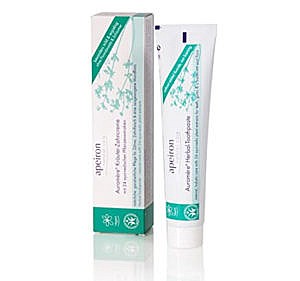 1st placeApeiron herbal toothpaste
1st placeApeiron herbal toothpaste
4.8
20th
Detail Avocadostore **
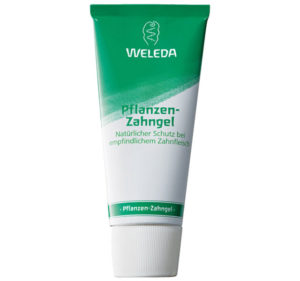 place 2Weleda toothpaste & gel
place 2Weleda toothpaste & gel
4.6
228
Detail Avocadostore **
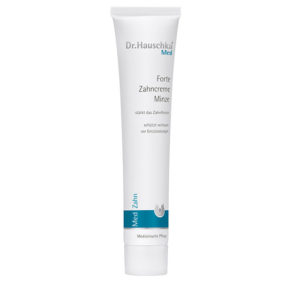 place 3Dr. Hauschka toothpastes
place 3Dr. Hauschka toothpastes
4.6
21
Detail Dr. Hauschka **
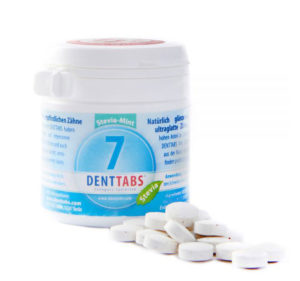 4th placeDenttabs
4th placeDenttabs
4.6
18th
Detail Avocadostore **
 5th placeSANTE Dental med toothpaste & gel
5th placeSANTE Dental med toothpaste & gel
4.5
70
DetailBioNaturel **
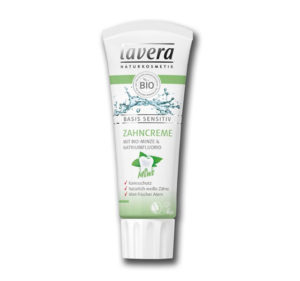 Rank 6Lavera toothpaste & gel
Rank 6Lavera toothpaste & gel
4.5
107
DetailDocMorris **
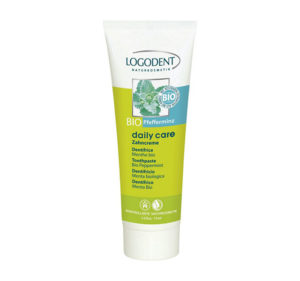 7th placeLogodent toothpaste & gel
7th placeLogodent toothpaste & gel
3.9
7th
DetailBioNaturel **
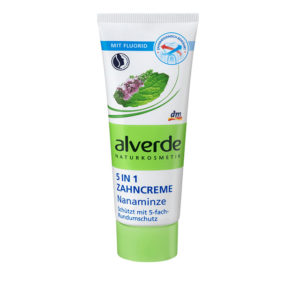 8th placeAlverde toothpaste 5 in 1 nano mint
8th placeAlverde toothpaste 5 in 1 nano mint
3.9
72
detail
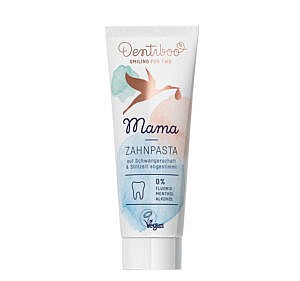 9th placeDentiboo Mama toothpaste
9th placeDentiboo Mama toothpaste
5.0
2
DetailAmazon **
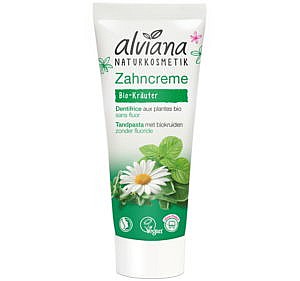 Place 10Alviana toothpaste
Place 10Alviana toothpaste
5.0
1
DetailsEcco Verde **
Utopia recommends: Anyone who does not live in the Eifel or in the Münsterland region probably has an inadequate supply of fluoride and should use fortified toothpaste or fortified mouthwash. Depending on the consumption of mineral water or tea, the use of fluoridated table salt should also be considered. The use of other “functional foods” is generally not recommended.
by the way: Utopia not only looked at fluoride, but also many other minerals and trace elements for you. Read more here:
- zinc
- potassium
- Calcium
- iodine
- phosphorus
- iron
- magnesium
- sodium
- selenium
- copper
- manganese
- molybdenum
Read more on Techzle.com:
- Is it safe to drink tap water in Germany?
- Correctly brushing your teeth: 7 tips for it
- The best organic toothpaste
Recent Articles
Related Stories